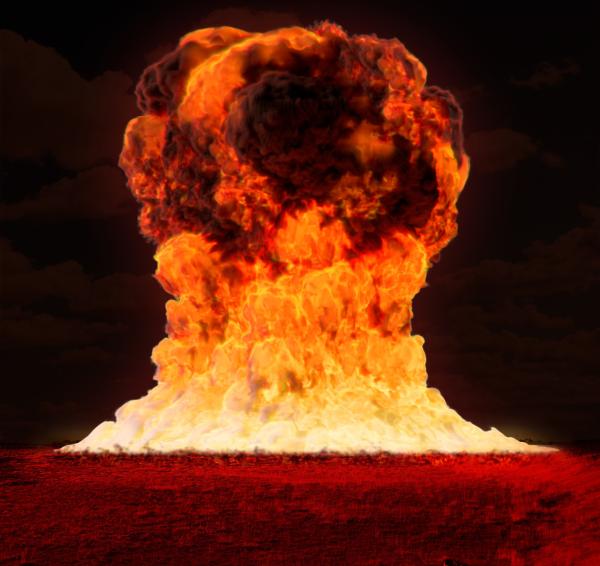The Cold War between the US and Russia, both wielding nuclear weapons, was still waged through their proxies. The Berlin Wall would not come down for another four years.
 Russian Lieutenant Colonel Stanislav Petrov was the duty officer at Russia's newest early warning system when it identified five incoming US missiles. Rather than immediately report the findings to his superiors, as required by military protocol, Petrov waited. He waited long enough -- 23 minutes -- to determine that this was a false alarm, more than enough time for those blips, if they had been missiles, to impact Russia. His actions were widely credited with preventing an unintentional nuclear war. While he was never sure that it was a false alarm, he believed that the small number of incoming objects, the warning system being new and largely untested, and the lack of corroboration made an attack unlikely. He was ultimately praised by his superiors but not until a thorough investigation of what might have been treasonous behavior. He was never seen as a hero and was eventually reprimanded for not filing the appropriate documentation in his log.
Russian Lieutenant Colonel Stanislav Petrov was the duty officer at Russia's newest early warning system when it identified five incoming US missiles. Rather than immediately report the findings to his superiors, as required by military protocol, Petrov waited. He waited long enough -- 23 minutes -- to determine that this was a false alarm, more than enough time for those blips, if they had been missiles, to impact Russia. His actions were widely credited with preventing an unintentional nuclear war. While he was never sure that it was a false alarm, he believed that the small number of incoming objects, the warning system being new and largely untested, and the lack of corroboration made an attack unlikely. He was ultimately praised by his superiors but not until a thorough investigation of what might have been treasonous behavior. He was never seen as a hero and was eventually reprimanded for not filing the appropriate documentation in his log.
I retold this story earlier this week in our end of week newsletter, Weekend Edition. I was pleasantly surprised by this correspondence from a member of ACSH's Board of Scientific Advisors, whose life intersected those events.
"During my European tour, I spent several weeks at various times in the north of Norway as a NATO liaison officer for USAF Europe Intelligence programs there. I was a duty officer at a communications relay facility near Wiesbaden, Germany, on the night when the Korean airliner was shot down. Our NATO listening stations had picked up the air/ground communications of the Russian pilots who fired on the airliner; I authorized the generation of Flash Override alerts passed up the chain to the US National Military Command Center.
A few years later, I interviewed a USAF Colonel who had been on the floor of the Strategic Air Command's (SAC) command post in Wichita, when an alert was received from the BMEWS radar site at Thule Greenland, indicating that a massive missile launch had been detected over the pole. The alert turned out to be another false alarm generated by an enlisted man who put the wrong training tape into a tape reader in the maintenance room of the BMEWS station. Due to the quick thinking of the SAC watch officer that night, nobody went so far as to wake the President or load the US missile launch codes. As with the case of Lt. Colonel Petrov, there were people on the SAC watch staff who were panicked and rebellious that the SAC watch commander refused to bring US forces to DEFCON-2 -- [1] a move that would have been detected by the USSR, and might have prompted them to ready their missiles for launch."
Our advisor ends on this note.
"I spent four years in the 1980s on the USAF Air Staff. They were momentous times, and I found myself in the middle of many of the controversies that surrounded President Reagan's SALT initiatives and the Star Wars program proposals. SAC vociferously opposed the Strategic Arms Limitation Talks/Treaty (SALT) and demanded expansion of the nuclear inventory even beyond the 27,000 warheads then available. An independent Defense Intelligence Agency (DIA) analysis of nuclear exchange dynamics had revealed gross over-targeting of Soviet bases and cities with multiple weapons. Another DIA study also determined that our bombers had no reasonable chance of ever reaching their targets or carrying out their mission. Nuclear fallout clouds which lofted millions of tons of particulates would have burned out B-52 and B-1 jet engines shortly after entering East Bloc airspace."
[1] Armed forces ready to deploy and engage in less than six hours




